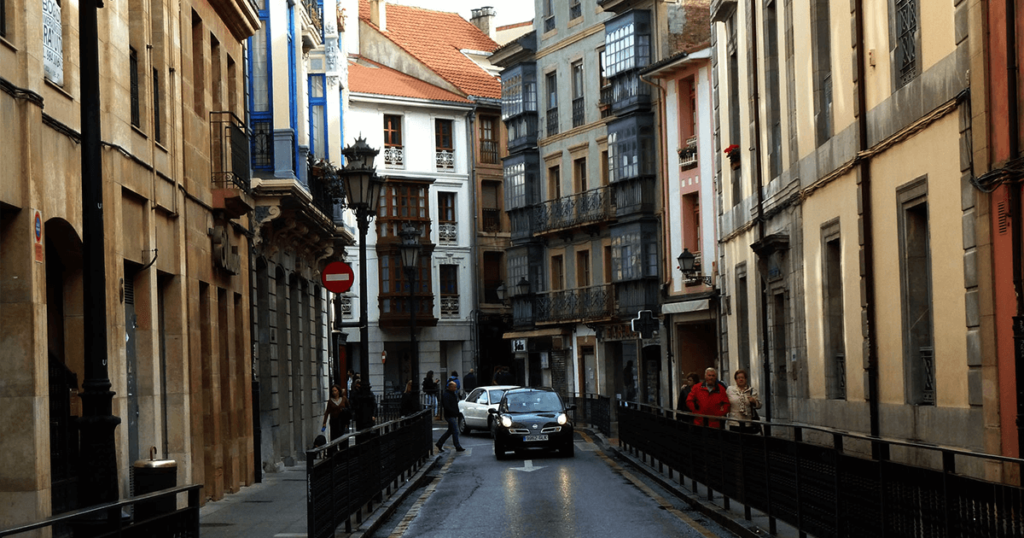
Picture drinking a glass of cognac and anise first thing in the morning in the neighborhood bar, leaving the car double-parked while you do so, and when you return, joking with the officer who genially pockets his ticket book without writing a citation, saving you the trouble of telling him to sod off, as my British friend might say. Such acts are not sins, but endearing peculiarities of the Spanish. Endearing? you ask. Yes, endearing, carried out with the certitude that where you go, the world has already been, that whatever you do has been done before, and that whoever is watching will shrug. What else can they do? What can anyone do? It’s an attitude of forbearance, not just for others but for yourself too.
The first time I understood this attitude was years ago while being driven into the capital city of Asturias, Oviedo, in a jumble of traffic, cars scooting about, looking for a short cut. No one likes a line, but whereas some would suffer one, the Spanish would be likely to dart about to avoid it. That’s what this driver was doing, turning the car in and out of lanes, looking for the best route through a roundabout. While we were still maneuvering in tight traffic but before we were close enough to discover the source of the backup, a traffic cop appeared at our side. No, not this way, but that way, he told us. The driver, hot and harried, took the opportunity to blow up about the quality of traffic control. He rose up in his seat, gesticulating, and the cop bent toward the open window, a stern expression on his face. While still yelling half-insults at the officer, the driver spied a gap, and we darted across a lane and away.
It wasn’t terrible, the show of irritation, just a lot of bluster, really, but it seemed to me unnecessary and impolite, and therefore wrong. Unfair. “It’s not his fault,” I said. “No one likes to be yelled at.”
“¡Que lo tome en dos veces!” was the driver’s excited answer as the car spurted forward.
The expression literally means take something in two servings. I pictured it: the officer led to a table, a hand on his shoulder forcing him to sit, a plate set before him. “I’m not having that,” he would say, and push it away.
“Tch tch, you must. It’s your job. But make two bites of it if you can’t stomach it all at once,” would be the kindly advice. I think many a reasonable adult in the Anglo-Saxon world would refuse the advice: if something is wrong, it’s wrong, and cutting an insult or abuse in two doesn’t make it more palatable.
But it does make it easier to swallow, and in this day and age, that could save lives. If only we all nibbled at the indelicacies pushed on us rather than snapping them up to make ourselves sick. As a child, trying to make myself gag on unwanted food to prove it was inedible, I stuffed as much as I could into my mouth, all in at once, one huge bite. “Two bites, Clellan?” Two bites indeed! The point wasn’t to manage the unpleasant situation but to protest it the most blatant way. If I retched, I was happy. “Look what you made happen,” I would reproach my parents, even as they repeated, “Careful, one bite is likely to choke you.” For children and other citizens, that is precisely the point.


